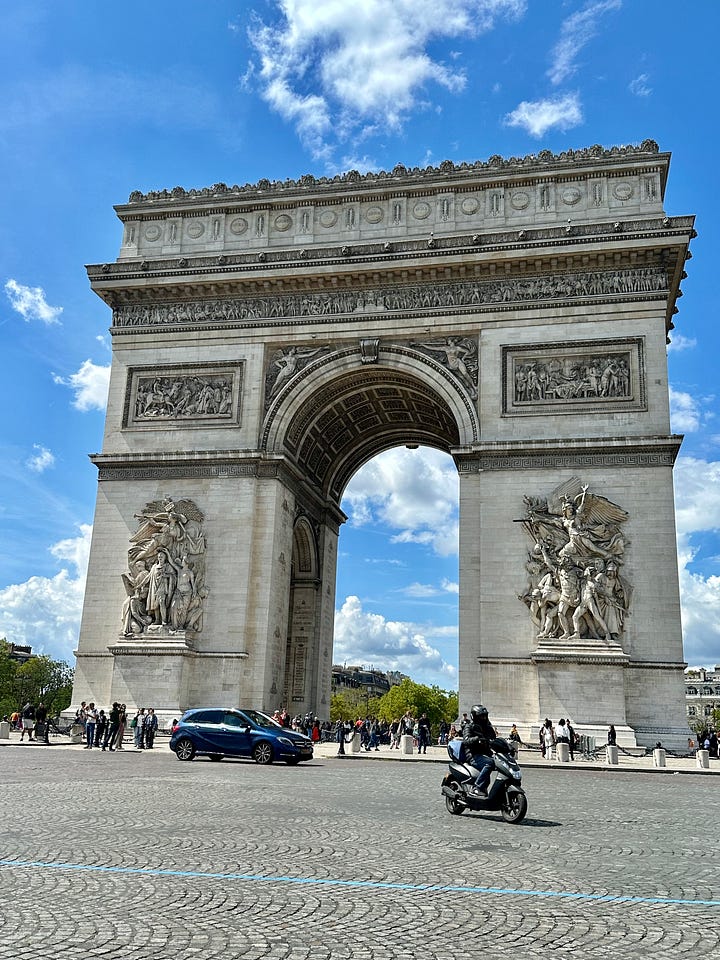How to Be a Responsible Traveler Abroad This Summer (And Always)
Because no one wants to be the reason a local market turns into a souvenir stand
Summer is here, and once again, Americans are dusting off their passports and heading abroad. You may be off to Italy to eat pasta under a pergola, or you've booked that dream trip to Portugal you've been planning since 2020. Either way—first, yay for travel! But also, a little reminder: the world is watching us (and sometimes, not in a good way).
Overtourism is real. Cities like Barcelona, Amsterdam, Lisbon, Venice, and Rome are struggling under the weight of excessive tourism. Residents are being priced out, pushed out, or fed up. Their neighborhoods are turning into selfie backdrops. Their markets feel more like amusement parks. The strain isn't just on the people—it's on the land, the water, the air, and the animals who live there. And all of this is happening against the backdrop of a global climate crisis.
So what's the answer? It's not to stop traveling. It's to travel better.




Here's how you can be a more responsible (and welcome!) traveler abroad:
1. Think Local First
Instead of defaulting to that global hotel chain or the spot everyone's lining up for on Instagram, look for family-run hotels, boutique stays, and locally-owned restaurants. That cozy inn or neighborhood trattoria might not have thousands of reviews, but chances are it's run by someone who actually lives in the town—and your dollars go further for them.
The same goes for tours. When possible, book directly with local guides or through platforms like Get Your Guide or Viator, which often support independent guides. It's not only more ethical—it usually results in a much more personal and authentic experience.
2. Brush Up on Basic Etiquette (and Vocabulary)
No one expects you to be fluent, but a few words in the local language—hello, please, thank you, excuse me—can go a long way (remember: Google Translate is your best friend). Also, familiarize yourself with basic customs. Do people greet with a kiss on the cheek? Do they eat dinner at 10 pm? What is the appropriate dress, especially when visiting places of worship? Is tipping expected or considered rude? It’s so important to do this research in advance of your arrival.
Also, and I say this with love: Don't be that tourist (you know what I mean). If you're speaking at a volume that would be fine in Times Square but jarring in a quiet Tuscan village, it's time to bring it down a notch.
3. Tip Generously
If tipping is customary where you're visiting—and in most places, it is—don't skip it. Many service workers in popular tourist destinations rely on tips to earn a living wage, especially in the post-pandemic era. Think of it as another small way to show appreciation and support the local economy.
4. Leave No Trace (and Pick Up After Yourself)
This seems obvious, but I'm saying it anyway: take your trash with you. Don't carve your initials into ancient ruins. Don't take a "souvenir" rock from the beach. Respect nature. Respect history. Respect that this place isn't yours—it belongs to the people who live there.
5. Go Beyond the Obvious
Sure, Paris is dreamy, and Santorini looks like a postcard—but they're also packed to the brim. So here's a little travel magic trick: go an hour outside the hotspot.
That sleepy town or seaside village just outside the tourist zone? It's more affordable, less crowded, and home to real gems you won't find on any top 10 list. Plus, you'll be supporting a local economy that wants and needs your visit.
I wrote about this in a past post on overtourism, and I'll repeat it:
"There is a rising trend of traveling to locations that are off the beaten path and 'hidden gems' due to the backlash of overcrowded locations. There is so much of the world to discover—so instead of going to the 'it' spot that all your friends on social media seem to be visiting, why not branch out? You'll likely be pleasantly surprised by the beauty, charm, and kindness you experience."
The Bottom Line: Travel Slow. Travel Thoughtfully.
Travel isn't just about ticking off bucket-list sights. It's about connection—a real, meaningful connection with people, places, cultures, and landscapes.
So yes, book that trip. But also take a beat. Do your research. Choose with care. Let's move away from fast, popular, and extractive and move toward something slower, kinder, and more sustainable.






This NYT article reminded me of your post! https://www.nytimes.com/2025/06/26/world/europe/uffizi-selfies-tourists-museums.html